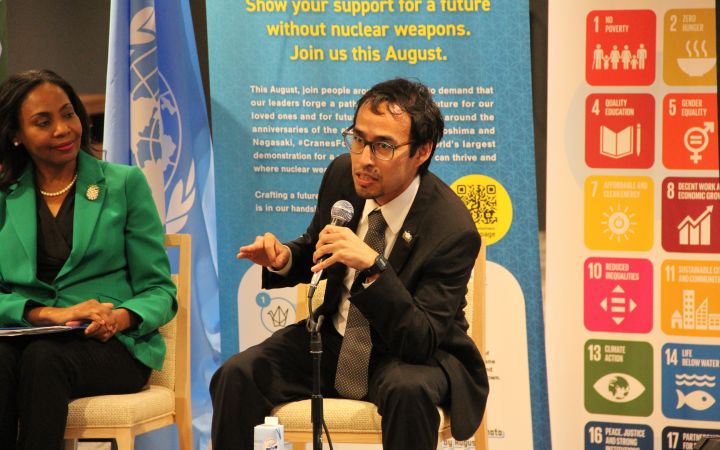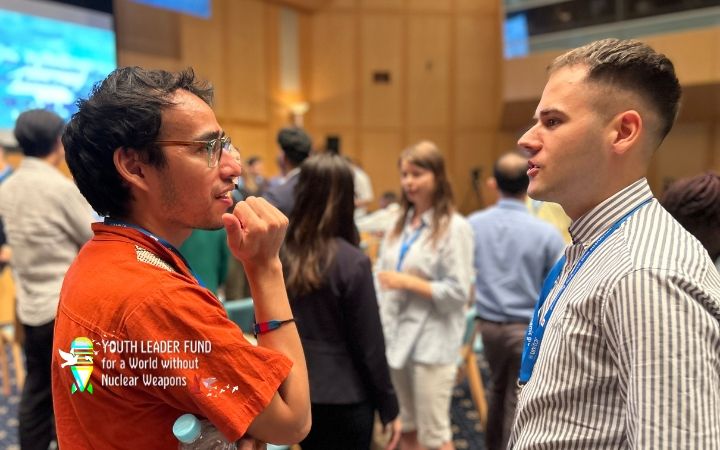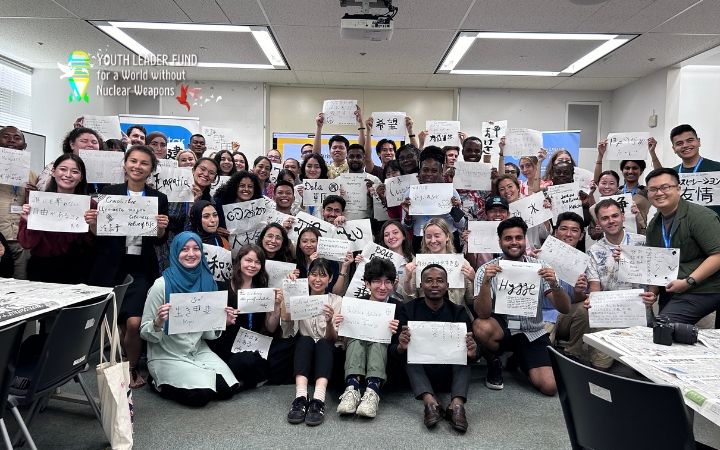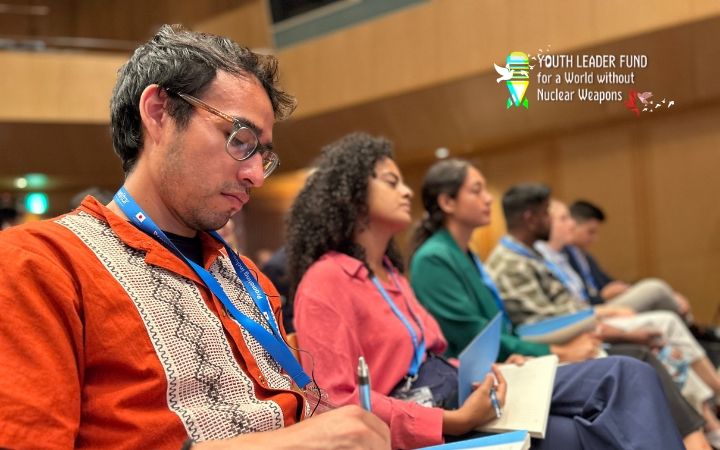- Franco Escobar, a research fellow and PhD student from Mexico, aims to reinvigorate youth involvement in nuclear disarmament.
- In 2023, Franco took part in the Youth Leader Fund Programme for a World without Nuclear Weapons, which connects future leaders from various countries to advance disarmament efforts.
- Franco is creating the first youth archive of nuclear disarmament, documenting the stories of young activists to reclaim authorship of the Nuclear Age.
3 November 2024, Hiroshima, Japan - Hailing from Mexico, Franco Escobar, a research fellow at the Hiroshima Peace Institute and PhD student, is on a mission to document youth involvement in nuclear disarmament.
Since the end of the Cold War, Franco believes that many people believe that nuclear war is no longer a significant concern. Compared to the vibrant activism of the 1960s and 1980s, youth participation in peace organizations has reduced drastically in the 21st century, according to work by historians like Dr. Lawrence Wittner. This trend indicates that overall awareness, not just among youth, has diminished, standing in stark contrast to the rising risk of nuclear conflict and the weakening of arms control treaties.
The decrease in youth involvement, Franco suggests, may be because young people today are grappling with more urgent needs. Called by some academics as the “precarious generation”, today’s youth are struggling to find jobs – more so than their parents or grandparents did – and complete their education without becoming heavily indebted. They face a world threatened by climate change and the uncertainties of rapidly evolving technologies like AI. In many countries, rates of depression and suicidal ideation are going up among youth.
GETTING YOUTH BACK ON BOARD
Nuclear disarmament has to become urgent, not just relevant but urgent [to get young people’s] mass involvement on a grass-roots level.” – Franco Escobar
All these make it crucial that nuclear disarmament resonates with young people as an urgent issue, rather than a merely relevant one. “We must recognize that the threat of nuclear weapon use is a present-day issue,” says Franco. In that sense, he sees the recent global conflicts with their heightened risk of nuclear weapon use as an opportunity to ignite that sense of urgency.
One positive trend, says Franco, is that more advocacy organizations are beginning to offer compensation for youth contributions, recognizing the value of their time and effort. Peace initiatives traditionally expected young people to volunteer their time, but now, some organizations in North America and Japan pay them, for example, for their participation or for creating and sustaining a student club.
Franco points out that other ways to facilitate youth inclusion is making sure that the often technical information – concepts like grand strategy, extended deterrence, minimum deterrence – are presented in digestible ways.
It goes to show that young people need not just encouragement and information but also resources or money, so they can be included.” - Franco Escobar
BUILDING RELATIONSHIPS WITH GLOBAL YOUTH: YOUTH LEADER FUND
In 2023, Franco was chosen to participate in the Youth Leader Fund Programme for a World without Nuclear Weapons. The programme, funded by the Government of Japan and managed by the United Nations Office for Disarmament Affairs, seeks to engage future leaders from both nuclear and non-nuclear weapon states and enhance their ability to contribute to disarmament efforts. The programme was launched in 2023 and four rounds are currently planned up to 2030.
We must prioritize dialogue and cooperation to achieve a world free of nuclear threats.” - Franco Escobar
Franco was among 49 youth leaders who joined the Youth Leader Fund study tour to Hiroshima and Nagasaki and took part in the panel discussion “Dialogue with World Leaders and Future Makers Towards a World without Nuclear Weapons” (6 August 2024), hosted by UNITAR.
He had the opportunity to meet hibakusha (atomic bombing survivors), including Mr. Seiichiro Mise, a survivor of the atomic bombing of Nagasaki, and Mr. Toshiaki Nakagawa, a second-generation hibakusha. As these survivors age, their powerful stories and calls for nuclear disarmament must be passed on to future generations. Thus, understanding their testimonies and pleas for action is a key aspect of the Youth Leader Fund programme.
One of Franco’s insights from the experience was the unparalleled power of in-person interactions among youth. He observed how in-person connections foster deep bonds and shared understanding, elements that are often lost in virtual environments. Meeting individuals from different countries create excitement and a sense of global community. This realization drives his commitment to build networks that amplify the voices of young people in disarmament efforts.
CREATING A YOUTH ARCHIVE OF NUCLEAR DISARMAMENT
As a research fellow in Hiroshima, Franco is creating the first youth archive of nuclear disarmament – a repository of oral histories of young people who often remain in the shadows, the people Franco calls the “unsung heroes of disarmament”. His aim for the archive is to serve as a resource for future historians, activists and the general public.
Through this archive, Franco hopes to showcase the diverse stories of young people from around the world, highlighting their motivations, challenges and triumphs as they work for a world free of nuclear weapons. By creating a space where youth voices can be heard and celebrated, he aspires to inspire a new wave of youth activism in the nuclear disarmament movement.
Nuclear Disarmament is not just an ideal, it is a necessity for global peace and stability.” – Franco Escobar
United Nations Online Volunteer Shriya Mishra contributed to this article.
The United Nations Institute for Training and Research (UNITAR) is a dedicated training arm of the United Nations. In 2023, UNITAR trained over 540,000 learners around the world to support their actions for a better future. UNITAR has a global presence, with offices in Geneva, Hiroshima, New York and Bonn and networks around the world. Find out more at www.unitar.org.





